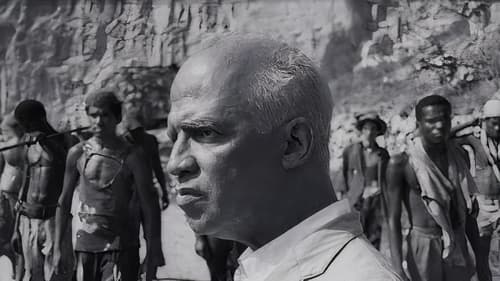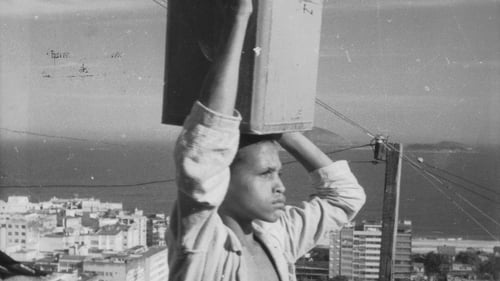Sadi Cabral
Birth : 1906-09-10, Maceió, Alagoas, Brazil
Death : 1986-11-23

Self
"Portraits and excerpts from Brazilian films from all times. Actors, directors and images that affirm cinema."

Deputado Jubileu
Glorinha, a middle-class 15 year old girl, always thought her mother Judite had killed herself, and that her father Gilberto has gone crazy as result. Her friend Nair takes her to a high-class bordello, where she wants to work. When uncle Raul, who raised her, discovers her prostitution, he decides to finally tell her all the truth about her parents' story.

Saul (as Sady Cabral)
Noronha is a low middle-class civil servant who lives with his frustrated wife Gorda and their three elder daughters. The youngest one, virginal Silene, is unexpectedly sent back home. Noronha discovers she has been expelled from boarding school for having killed a female cat and her seven newborns in a hysterical fit. Many dark family secrets will emerge from that episode leading to tragic events.

Based on fact, this is the story of the struggles of Japanese immigrants who traveled to and settled in Brazil looking for a better life.

70-year-old widower living in a poor Rio de Janeiro suburb falls in love again when he finds a woman of approximately the same age.

Erotic comedy divided in three episodes.

Anastácio

Habão
Unable to endure the idea that he would go without punishment, a criminal's victim chases him the length and breadth of Brazil for a showdown.

Anxious to please his boss, Roberto agrees to host the chief's lover in his own home, unaware of the problems this could cause among his family.

Abolicionista

Profeta
Bums find $15,000 in trash, but the money belonged to criminals.

Mariana's father

Juca
True story of a famous and violent Brazilian outlaw nicknamed "Paraíba". After being shot, Paraíba tries to hide inside a church, where he starts remembering episodes of his criminal life.

Encarregado da Pedreira
Men work in a quarry on the edge of a hill where a slum is located, of which they are residents. The slope is blown up, advancing to the land near the shacks. Slum dwellers are warned that new explosions can cause damage. The community decides to place itself on the slope, preventing another explosion; without attitude, the foreman gives up on blowing up the hill.

An unlucky trumpeter and a young singer try to rebuild their lives in Brazilian nightclubs. They will try everything for everything while making a risky heist.

Lopes Soares
Mike, an architect, is married to Lin, a beautiful and unfaithful woman. Returning from a trip, he finds she's disappeared. When he tries to locate her, he also learns about her many affairs, and he gets closer to Marina, his efficient assistant, who helps him solve the mystery.

When chain gang prisoners attack their guards, some of the hardened criminals escape Brazil's infamous Anchieta Prison amidst all the pick-ax carnage. The government dispatches a machine-gun squad to round up the fugitives, who have fled by foot and boat and now have begun to turn on each other.

Maos Sangrentas translates to Bloody Hands in English, and that's just what this gruesome Brazilian melodrama delivers. The story begins when a gang of dangerous convicts escape from a penal colony. With the police in hot pursuit, the escapees cut a gory swath through the countryside. As his comrades are killed off one by one, the leader of the group descends into gibbering madness. In contrast to this, a subplot develops involving the least dangerous of the escapees, who murdered his wife in a peak of self-righteous rage and is now seriously in doubt about the wisdom of his deed. Principal scenes reworked in 1962 to make the film The Violent and the Damned (q.v.).

(segment "Pedreira de São Diego")
Five segments about the hardships faced by people living in slums on hills in Rio de Janeiro.

Diretor do Reformatório
Salvador, Bahia, Brazil, during the dictatorship of Getúlio Vargas. Outlaw Tonio is involved in a conflict between strikers and the police. His mistress tries to keep him from his companions, but he steals her belongings to help the persecuted. Dissatisfied, she denounces him, compromising him politically.

Banned by Brazil’s Federal Department of Public Safety, Rio, 40 Graus is a landmark film that ushered in the wave of Cinema Novo in Brazil. The film chronicles a day in the life of five peanut vendors from Rio de Janeiro's favelas. This was one of the first Brazilian films to address the issues of race, poverty, and class.

Sinfonia Amazônica, or Amazon Symphony, was Brazil's first animated feature-length film, produced entirely by Anélio Lattini Filho over five years and finished in 1951. Like Disney's Fantasia, it tells several folk stories over orchestral music.

An unlucky woman checks in a hotel pretending to be a French baroness so she can have 24 hours of dream before comitting suicide.

A poor woman passes herself as singer that just arrives from Frances and becames a sensation on Rio de Janeiro's high society.

















